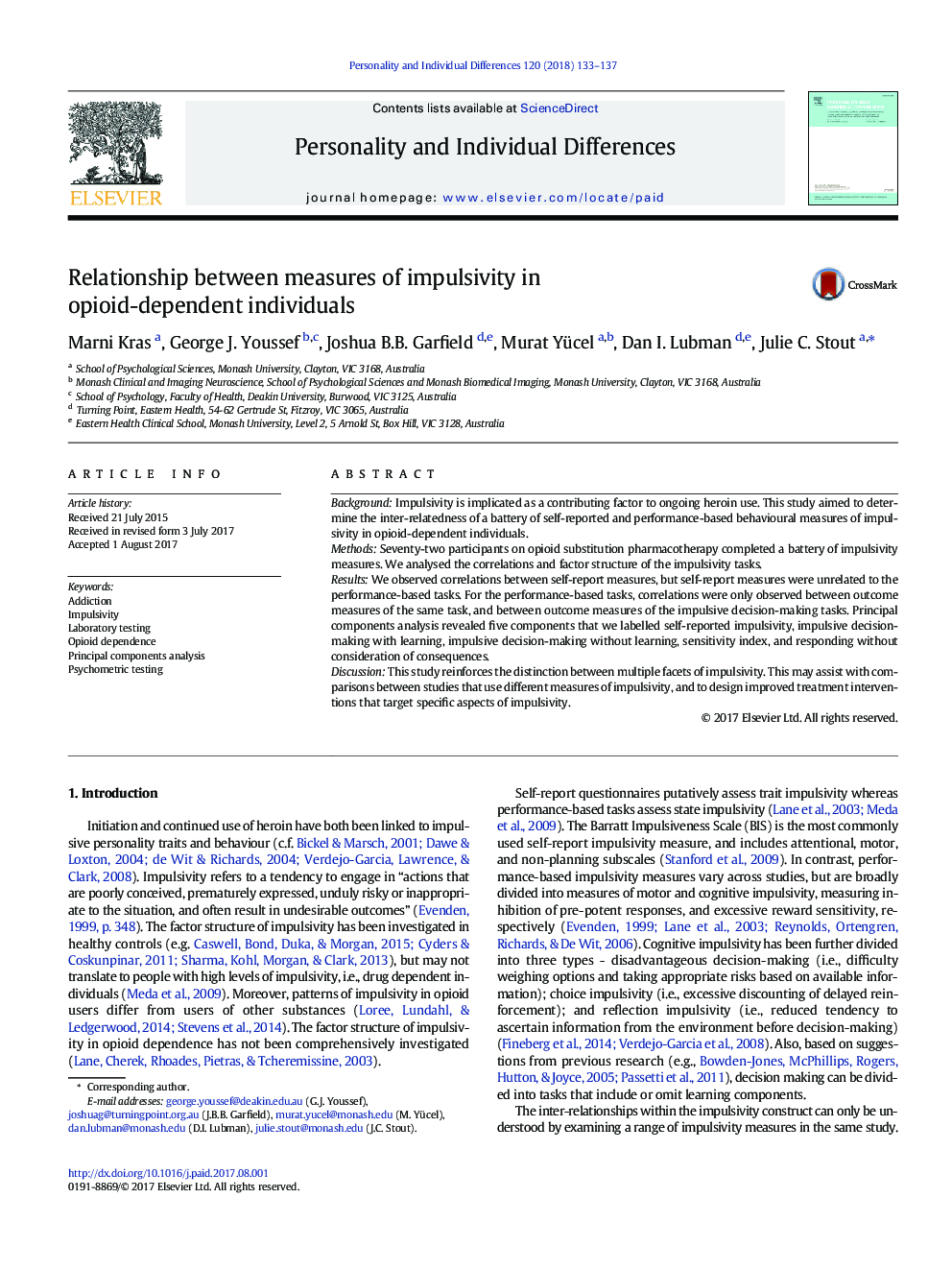| Article ID | Journal | Published Year | Pages | File Type |
|---|---|---|---|---|
| 5035527 | Personality and Individual Differences | 2018 | 5 Pages |
â¢We examined different facets of impulsivity in opioid dependent individuals.â¢Results reinforce distinctions between self-report and multiple behavioural impulsivity measures.â¢Different facets of impulsivity may differentially relate to opioid dependence.â¢Different facets of impulsivity may help develop improved treatment interventions.
BackgroundImpulsivity is implicated as a contributing factor to ongoing heroin use. This study aimed to determine the inter-relatedness of a battery of self-reported and performance-based behavioural measures of impulsivity in opioid-dependent individuals.MethodsSeventy-two participants on opioid substitution pharmacotherapy completed a battery of impulsivity measures. We analysed the correlations and factor structure of the impulsivity tasks.ResultsWe observed correlations between self-report measures, but self-report measures were unrelated to the performance-based tasks. For the performance-based tasks, correlations were only observed between outcome measures of the same task, and between outcome measures of the impulsive decision-making tasks. Principal components analysis revealed five components that we labelled self-reported impulsivity, impulsive decision-making with learning, impulsive decision-making without learning, sensitivity index, and responding without consideration of consequences.DiscussionThis study reinforces the distinction between multiple facets of impulsivity. This may assist with comparisons between studies that use different measures of impulsivity, and to design improved treatment interventions that target specific aspects of impulsivity.
